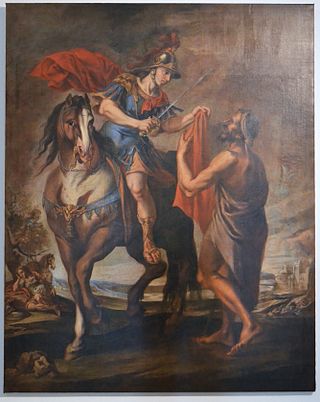See also
- Le Normand-class frigate, a French Navy class from the 1950s on
- Franck Le Normand (born 1931), French cyclist in the 1952 Olympics
- Norman (disambiguation)
Normand is the French name for the Norman language and people from Normandy.
It is also a surname and masculine given name. "Normand" = The French surname describes those families in and originating from Normandy. The "d" was retained by immigrates that settled in North America.
"Norman" = of French origin but refers to the linage that conquered England in the year 1066. After the Battle of Hastings. Refer to: William the Conquer Both versions of this surname occur throughout Canada & the United States of America. It may refer to:
Lefebvre is a common northern French surname. Alternative forms include Lefebvre, le Febvre, Le Febvre, Lefèbvre, le Fèbvre, Le Fèbvre, as well as the common variant Lefèvre. Dialectal variants include Lefevere (Belgium), Lefebre, Lefeuvre, and Lefébure.

Walter is a German and English masculine given name of Germanic origin, composed of the elements walt- "power", "ruler", and hari "army".
Adam is a surname.
Lamb is a surname, and may refer to
Lucas is a surname. Notable people with the surname include:
Mason is an occupational surname of Scottish and English origin, with variations also found in Italian and French, historically referring to someone who performed stonemasonry work. The surname Mason was originally brought to England in the great wave of migration following the Norman Conquest of 1066. The name Mason is for a stone-mason. The name was originally derived from the Old English or Old French word masson.
Roy or Roi is a masculine given name and a family surname with varied origins.
Duval or DuVal is a surname, literally translating from French to English as "of the valley". It derives from the Norman "Devall", which has both English and French ties. Variant spellings include: Davolls, Deavall, DeVile, Devill, Deville, Divall, Divell and de Eyvill. Its meaning is derived from the French town of Deville, Ardennes. "Devall" was first recorded in England in the Domesday Book.
Bird is an English surname, probably deriving from the vertebrates of the same name. Another common variant of this surname is "Byrd."
Munro is a Scottish surname. It means "man from the River Roe" in County Londonderry, Northern Ireland. The surname is common in Ross-shire and other areas of northern Scotland; it also spread to Canada via emigration. Variant spellings of the same name include Monro, Monroe, Munroe, Munrow and Manrow.
Corbett is an English-language surname. It is derived from the Anglo-Norman French, Middle English, and Old French corbet, which is a diminutive of corb, meaning "raven". The surname probably originated from a nickname referring to someone with dark hair or a dark complexion like a raven's. The surname was brought to England from Normandy, and spread to Scotland in the 12th century, and into northern Ireland in the 17th century. Early instances of the name are Corbet in Shropshire, recorded in Domesday Book in 1086; Corbet in Shropshire, recorded in the Assize Rolls of Worcestershire in 1158; and le Corbet in Oxfordshire, recorded in the Eynsham Cartulary in 1323. Variations of the surname include: Corbet, and Corbitt. Corbett is sometimes an Anglicised form of the Irish surnames Ó Corbáin and Ó Coirbín, which mean "descendant of Corbán" and "descendant of Coirbín", respectively.
Elliot is a personal name which can serve as either a surname or a given name. Although the given name has historically been given to males, females have increasingly been given the name as well in the United States.
Gilbert is a surname. Notable people with the surname include:

Martin may either be a given name or surname. In Scotland, Martin or McMartin is a common surname of Scottish Gaelic origin. Martin is, however, more common as a masculine given name in many languages and cultures. It comes from the Latin name Martinus, which is a late derived form of the name of the Roman god Mars, protective godhead of the Latins and, therefore, god of war. The meaning is usually rendered in reference to the god as "of Mars" or "of war/warlike" ("martial"). Alternatively, it may also be derived from the Proto-Germanic elements "mar", meaning famous and "tank", meaning thought, counsel.
Norman is both a surname and a given name. The surname has multiple origins including English, Irish, Scottish, German, French, Norwegian, Ashkenazi Jewish, and Jewish American. The given name Norman is mostly of English origin, though in some cases it can be an Anglicised form of a Scottish Gaelic personal name.
Balfour is a Scottish surname born by members of the Clan Balfour.
Robertson is a patronymic surname, meaning "son of Robert". It originated in Scotland and northern England. Notable people and companies with the surname include:
Levy or Lévy is a surname generally of Hebrew origin. It is a transliteration of the Hebrew לוי meaning "joining". Another spelling of the surname—among multiple other spellings—is Levi or Lévi.
Richard can be a surname. Variations include: Ricard, Riccard(s), Richard(s), Ritchard, Richardson, Richardsson, Ricquart, Rijkaard, Rickaert, Ryckewaert
This surname has two distinct and separate origins: